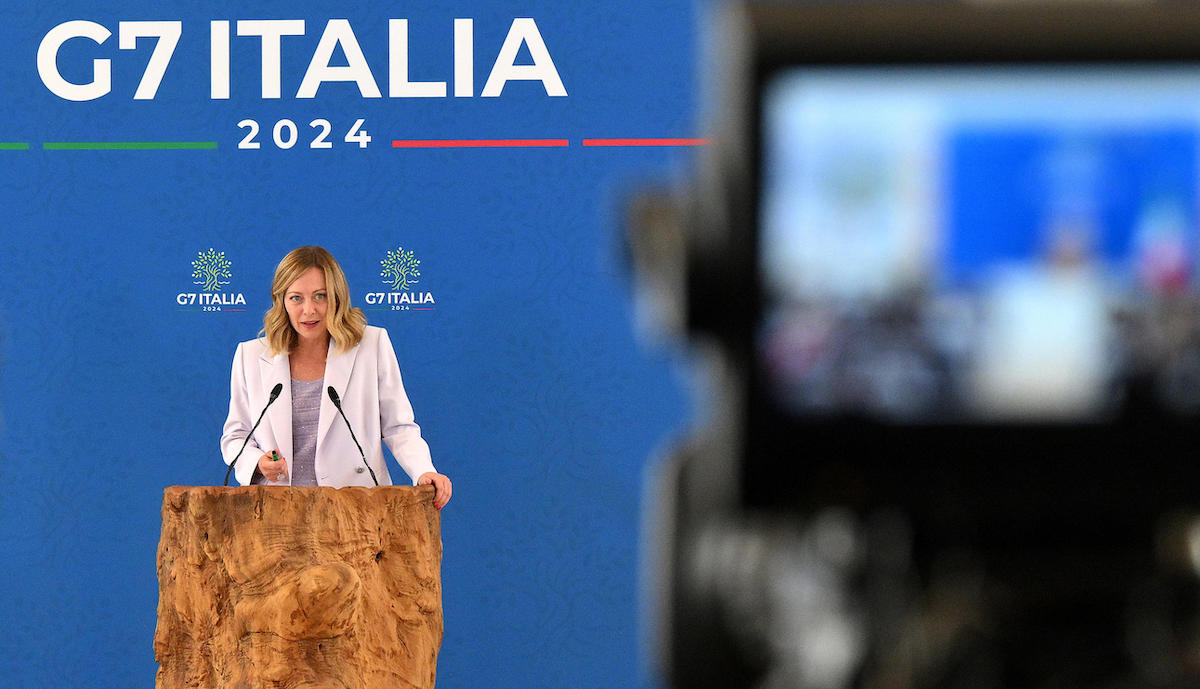We are experiencing times of very high tension and total uncertainty as to the direction that the crisis in the Middle East could take. After the deadly blows inflicted on Hezbollah in Lebanon – culminating with the assassination of leader Hassan Nasrallah and continuing with the first ground incursions by elite troops – Israeli leaders are weighing the possible response to yesterday's attack by Iran with 180 missiles. And everyone is wondering, in view of the choices that will be made in the coming hours, whether Benjamin Netanyahu will be able to definitively emerge from the “black hole” into which he sank after the Hamas massacre a year ago, transforming the regional balance in favor of Israel. But another hypothesis is beginning to appear in the international media these days, very different and even easier to measure in the short term: what if the real winner of this convulsive phase of widening hostilities ended up being Donald Trump above all? It's no secret that the Republican candidate had found himself in serious difficulty in recent weeks faced with the advance of his “reserve” opponent in the White House Kamala Harris. A concern expressed plastically in the performance of the two men during the televised debate on September 10, then mercilessly photographed by the trend of polls and donations. This is why Trump was desperate for a way to boost his election campaign. And since last night, he seems to have focused very heavily on the Middle East issue.
Open campaign
“The world is on fire and spiraling out of control. We are without leadership, no one is running this country,” Trump shouted, accompanied by an official note at the end of the Iranian attack on Israel. “No one is in charge and it is not even possible to understand who is more confused: Biden or Kamala Nobody has a clue what's going on,” the tycoon attacked, attempting to crush the candidate under the weight of the gigantic problems facing the outgoing administration. A spiral of dramatic events, and for many incomprehensible, ideal for Trump to relaunch his favorite thesis on international politics: “Under me, there was NO WAR in the Middle East or in Europe (…), but the PEACE. Today there is war or the threat of war everywhere and the two incompetents who run this country are bringing us to the brink of a Third World War. » Free words from an electoral campaign without borders. Yet the White House's difficulties are real and obvious. And even sensitive media highlight them without too many compliments liberal.
A year of humiliation
Israel's reckless military or intelligence actions suffered by the United States, often if not always informed after the fact, now constantly border on humiliation. A “pattern of American impotence” that has lasted for a year now – Netanyahu’s resistance to any pressure to accept the ceasefire in Gaza has made Biden lose sleep – but which, in recent weeks, has made a spectacular leap in quality. After bringing the war back to Hezbollah through a mix of unprecedented and autonomously decided war actions, the Israeli war cabinet on Monday evening gave the green light to the start of ground operations inside Lebanon. Choice made just hours after Biden publicly called for a ceasefire on the northern front. And what's more, three days earlier, Netanyahu had given the order to decapitate the leaders of Hezbollah with the maxi-attack on Beirut from New York, just after finishing an intervention in the tones of “total war” at the Glass Palace. Where he had landed barely 24 hours earlier, in the American hope of a de-escalation. The problem is here CNNis that all this is not just a “diplomatic embarrassment” for Biden, whose days (in the White House) are now numbered. “Every time an American president is snubbed, his personal prestige suffers, but so does the perception of the United States as a world power. » Translated: Everyone from Vladimir Putin to Xi Jinping is taking notes.
Kamala's dilemma
The fact, as Gideon Rachman notes Financial Timesis that with his latest initiatives, Netanyahu has put not so much Biden, but Kamala Harris in a most uncomfortable situation. Because if making one's voice heard on Gaza could have ultimately been simple, always defending the fundamental principle of Israel's right to punish Hamas terrorists, criticizing Israel now becomes much more difficult for the Democratic candidate. Because all eyes are on the macroscopic regional conflict: that with Iran, a country with which America has no official diplomatic relations and which, only in recent months, has been discovered plotting “political assassinations” abroad. In short, Netanyahu appears to be able to operate virtually undisturbed during the short, if not very long, US election window. If Biden has dull weapons, Kamala Harris can only look worried and at most make statements of general common sense. While Trump, who has the advantage of emerging from a desert crossing of several years outside the control room, can relaunch without contest his campaign on the “world on fire” under the leadership of the Democrats and on “peace ” which he would bring back as soon as possible. as we return to the bar.
Netanyahu's agenda and Trump's agenda
Meanwhile, Netanyahu still has a month to do a little less than he wants on the various open fronts – between Iran, Lebanon, Gaza (and the West Bank). With the only limit – at least that is his hope – the considerations of national security and the brakes or limits that the Israeli political-military establishment will be able to set so as not to risk making missteps, in a state of mind dominant in these days at the limits of pride. Only a few days ago, and who knows if it is just a coincidence, Jared Kushner – son-in-law of the tycoon and former advisor for the Middle East, but above all architect of the Abraham Accords – reappeared from the mists of the 'post-war. The Trump era. Rather than a ceasefire, Israel must now follow through and destroy Hezbollah, Kushner wrote in a lengthy article on the strategic plan – Iran's. This regime “has remained in the old Middle East, while its Gulf neighbors look to the future by investing in their populations and their infrastructure,” wrote Kushner, reviving the relevance of the agreements normalizing relations between Israel and a series of Arab countries in the world. The region has long been considered the Trump administration's most important foreign policy legacy. What Biden has not touched for five years, and which the “contractor” would be eager to resume and expand. The bet is still immature, but if the war were to spread a little further, Rachman suggests, it could prove to be the “October Surprise” that shifts the balance in the race for the White House. In a month, day after day, the answer.


